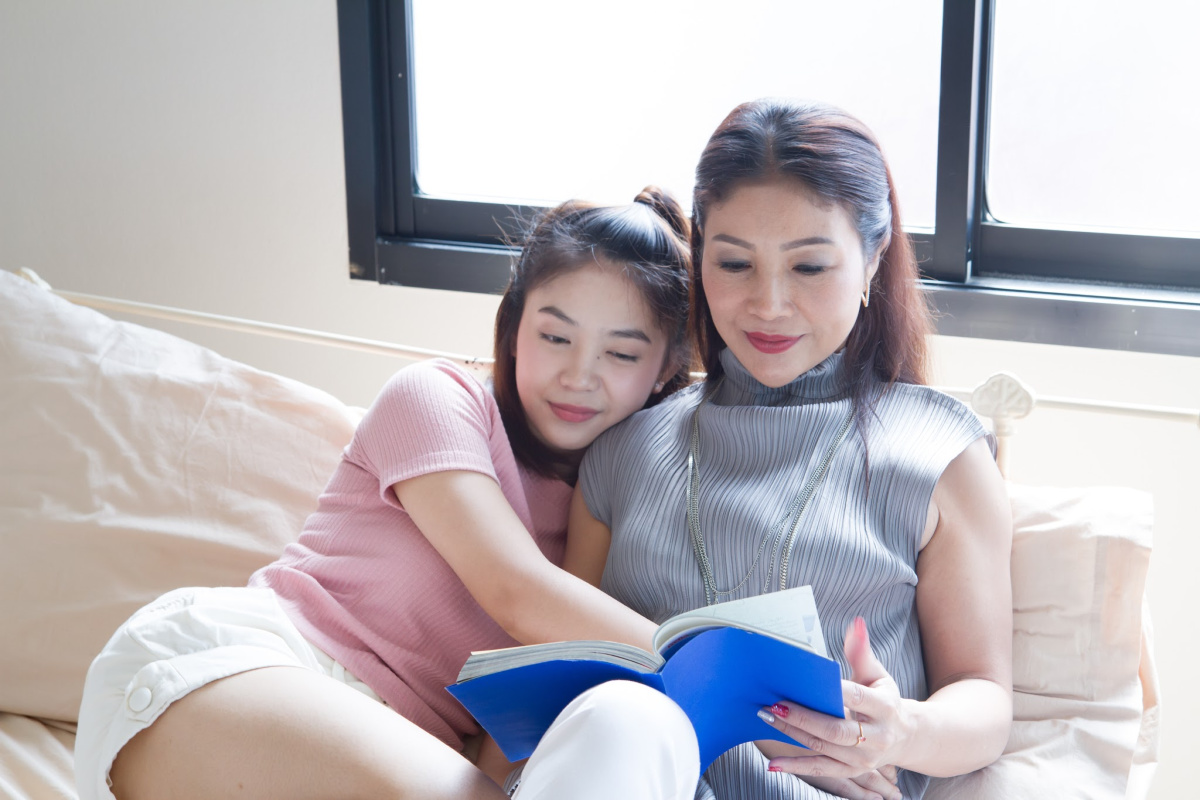
While my usual audience is teachers, it seems like everyone around me has turned into a teacher in some way—whether they wanted to or not. We are all trying to figure out this new way of living. Teachers are doing their best to make instruction work during this time—without a whole lot of preparation. But also know we’ve all been thrown into something new together and no one has all the answers for how to make at-home learning work.
This new “normal,” if you can even call it that, has many adults reeling, trying to figure everything out. I know my brain is racing a lot of the time and is taking me in different directions. I’m writing a lot—but not what was on my original writing plan. My schedule has become more go-with-the-flow and there are many more impromptu walks and runs. Think about how you are handling this situation and realize your children are trying to deal with it, too. This might mean schedules or activities don’t work out the way you planned, and that’s okay. We are in uncharted territory and there aren’t right or wrong answers to how to work from home and homeschool successfully at the same time.
Setting Goals for At-Home Learning
So if you’re sitting there trying to wrap your mind around how in the world you are going to make this work, here are a few ideas to start with.
First, this is not a time for daily standards. This is a time for big, broad learning goals. What do you want for your child? Do you want them to become a strong reader? A more effective writer? Do you want them to become better at using technology?
For example you might set goals like this:
- I want you to find a genre of book that you really like and then be able to talk to me (or write to me) about why you like that genre
- I want you to be able to write effectively, expressing clear ideas and reasoning
- I want you to be able to formulate a question and find the answer
If the above are your goals, then you know that part of the day’s schedule will be reading, writing, and researching. But this might look different every day. On Monday, your child might be engrossed in a book and want to read it all morning. That’s okay. Take advantage of that authentic engagement. Your home school day doesn’t have to look like a regular school day. That flexibility is an asset and allows students to drive their own learning. Consider it an opportunity for your child to dive deep into something they are passionate about. Maybe they explore a genre of books? Maybe they research an idea that they’ve been thinking about but have never really had the time for? Remember, the important thing is how these activities are helping your child grow.
Finding Relevance
Once you have some big goals for at-home learning, then you need to think about relevance. What is going to be useful and interesting to your child? For older students, I would suggest you connect learning to what we are currently going through. This is unprecedented in our lifetimes. It is directly affecting their lives.
Some suggestions for older students might be:
- A daily journal about how they are feeling/reacting to what is going on. This can help students express feelings they may not otherwise vocalize. There is likely a lot of fear and a lot of disappointment. For older students, their sports and friends are now out of reach. For seniors, many will now never have a prom or a senior game on a sports field.
- Research into what they can do now to help their community. They can present their findings to you at the end of the day. This can help them see that they are not just passive members of society. It might also help them see that staying home is an action in itself and is helping their community.
- Find connections to movies or books. How is real life different from the fiction? Have a discussion.
- Research how the government works in times of trouble. Who does what? What can they do? What does it mean? How has our country responded in the past? Honestly, this could probably be an activity for adults, too.
- Have students identify social media posts that they believe are reliable and credible in terms of information. Why do they think this? What are their criteria?
For younger students doing at-home learning:
- Read-alouds are part of elementary school, so whenever you can find the time, it’s always beneficial to read to your child. Read-alouds can be beneficial for older students, too.
- An emergent writer’s journal can be made of pictures. What does their day look like? What do they like about being home with their family?
- Scavenger hunts—there is really no limit to the amount of scavenger hunts you can create. Maybe you go through the alphabet and have your child find something that starts with the letter A, letter B, etc. Maybe your child is practicing rhyming in school. Have them find objects in the house that rhyme with words that are at their current level. Maybe it’s find objects in the house that rhyme with “cat.”
- You can also have students find patterns. What items in the house are red? Or have them sort items in the house by color or some other quality.
- Have students count objects around the house.
Flexibility and Creativity in At-Home Learning
Above all, feel free to be creative. Scavenger hunts and journal topics don’t have to be limited to what you think is academic. Have fun! Do something that takes everyone’s mind off of why we’re all stuck at home in the first place.
Most of all, allow them space to step back and deal with this situation that often times seems surreal. Reassure them. Model for them how to react to a crisis.
And as I have told the teachers I work with, don’t be hard on yourself. This is not about perfection. This is about doing the best that we can for our students while they are doing at-home learning. We are all in this together. And together, we will all be okay.
About the Author
Kristen Henry is an independent education consultant at KH Literacy Education. Based on her experience as a literacy educational leader, she guides teachers to use research-based practices, be more confident in the classroom, and change students’ lives. Her book, Guiding Questions, helps instructional coaches, administrators, and teachers learn to have more productive conversations about improving their teaching practice.
Read More
- “Self Care While Staying at Home,” Lora Idol, San Antonio Charter Moms, April 6, 2020
- “Keep Calm and Parent On: Advice for Accidental Homeschoolers,” Caitlyn Baker and Shannon Ruddell, San Antonio Charter Moms, April 3, 2020
- “How Social Distancing Protects Our Loved Ones, Our Neighbors, and Our Community,” Anne Hebert, San Antonio Charter Moms, March 20, 2020
- “Resources for Staying Active With Kids While Social Distancing,” Amy Johnson, San Antonio Charter Moms, March 19, 2020
